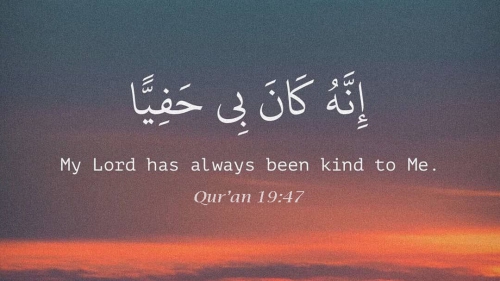Understanding the Essence of Wahi and the Mystical Practices in Islam

Allah told the Prophet ﷺ about his position: O Prophet! You did not know even a day before that you were going to receive revelation:
وَكَذَٰلِكَ أَوْحَيْنَآ إِلَيْكَ رُوحًا مِّنْ أَمْرِنَا مَا كُنتَ تَدْرِى مَا ٱلْكِتَـٰبُ وَلَا ٱلْإِيمَـٰنُ وَلَـٰكِن جَعَلْنَـٰهُ نُورًا نَّهْدِى بِهِۦ مَن نَّشَآءُ مِنْ عِبَادِنَا وَإِنَّكَ لَتَهْدِىٓ إِلَىٰ صِرَٰطٍ مُّسْتَقِيمٍ
(42:52) – And thus, too, [O Muhammad,] have We revealed unto thee a life-giving message, [coming] at Our behest. [Ere this message came unto thee,] thou didst not know what revelation is, nor what faith [implies]: but [now] We have caused this [message] to be a light, whereby We guide whom We will of Our servants: and, verily, [on the strength thereof] thou, too, shalt guide [men] onto the straight way.
Thus the Prophet ﷺ did not know that he was going to getوحی Wahi (revelation) let alone making preparation for it; working hard at it; trying his best; and making every kind of effort to get it. The Quran says that the Prophet ﷺ did not have any knowledge as to whether or not he was going to receive Wahi (revelation). وحی Wahi is a divine knowledge given to whomever Allah chooses as His messenger.
Revelation is a knowledge that is sent down from above. It is not something that travels from bottom up; it is not something that comes out from inside. It is a divine knowledge that comes down from above; it is purely an objective knowledge. The Arabic word نزول “Nuzool” says: it is all about its reality. But what do the proponents of تصوّف Taswwuf, شریعہ Shariah, and طریقہ Tareeqah say? They say: We know how to get it.
Well! Strange things happen when you enter their handcrafted worlds!! In تصوّف Taswwuf there are excruciating physical exercises after completing which one gets the title of اولیاء “Auliya”. And then there are meditation exercises? How this is done?
Just have meager food and little water and sit in a dark cave up to 40 days and nights at a stretch. Sit it in a dark little room and turn it into cave. Since inside the caves it is completely dark, make meditation room totally dark by blocking any light filtering through the door by blocking any slits and any openings. The darker the room gets the more light is supposed to shine within the heart of a would-be Sufi, we were told. This is the process by which to become spiritually advanced through mysticism.
Mysticism (تصوّف Tasawwuf) has the same face – everywhere
Whether it be Christian mysticism, Hindu mysticism, Jewish mysticism, or Muslim mysticism—it is all the same. It has the same method, the same process, and the same result everywhere: Sitting alone in totally dark solitary confinement and doing meditation and esoteric exercises – completely cut-off and unconcerned with what goes on in the real world.
To give this تصوّف Tasawwuf legitimacy – as mysticism and its related rituals are totally alien to Islam –its proponents said that the Prophet ﷺ himself used to do these things in the cave Hira near Mecca before being chosen as a Prophet. It is commonly accepted that he often used to go to the cave Hira with little food and water and he spent up to 40 days and nights there. Once they attributed this to the Prophet ﷺ it was simple matter to establish the authority for this alien concept. What else could he have done in a dark cave except تصوّف Tasawwuf?
Making effort to receive direct knowledge from God
Thus this supposed practice of the Prophet ﷺ sitting in a meditative state for 40 nights in a dark cave called Hira generated the certificate for latter-day-mystics of Islam. They take this supposed attribution as following the Sunnah of the Prophet ﷺ. What is achieved by doing all this esoteric meditation exercises in a dark cave for nights at a stretch? – The position of great spiritual leadership (called اولیاء Auliya) by acquiring spiritual knowledge.
They call this “knowledge from God” (Ilm-e-Ludunni in Arabic) – the knowledge that directly comes from God with no human effort. This is the concept promoted by the proponents of Tasawwuf. But this is what revelation (Wahi) is, although they do not refer to it as Wahi; they call it Ilm-e-Ludunni. And one has to make the effort for this – meditating in dark cave and going through esoteric exercises to get it, supposedly like the Prophet ﷺ did.
They bring the Prophet down to their level by manufacturing this story – that he used to go to cave to meditate and did all this esoteric meditation exercises; and, as a result, he got this knowledge from God. So, according to fabricated Tasawwuf it is this way the Prophet ﷺ found وحی Wahi (revelation) in the cave.
The meaning of ایمان (Iman) in Allah
The Quran, right from the start, from first page to the last, has put great emphasis on ایمان (Iman) in Allah. What is this ایمان (Iman) in Allah that the Quran emphasizes so much? To us the explanation comes from the priest (Mullah): Just sayingآمَنُواْ بِاللّهِ – I believe in Allah – is enough.
We did not even say this:آمَنُواْ بِاللّهِ. We are born-Muslims. Anyway, according to the Mullah, just saying: “I believe in Allah” fulfills the requirement of:آمَنُواْ بِاللّهِ . But does this have any effect on our lives? Do we really care?
The sad thing is that we don’t even understand what these words mean, although the entire structure of دین (Deen) stands on this foundation of آمَنُواْ بِاللّهِ. In fact, we can say that the entire foundation of دین (Deen) and human life revolves around what kind of concept of God is at its center.
The word Allah consists of “Allah” which means: “The one whose obedience is carried out.” What we call authority is Allah: The only authority; the only Ruler. Allah, alone, has the authority to rule. And obeying Allah’s exclusive authority means believing in Allah – this is آمَنُواْ بِاللّهِ. His pure authority means that no one else’s authority should be mixed in with it. If we believe in any form of human rule or if we obey any form of human rule, then this is Shirk. The same way obeying any human laws or human commands is Shirk.
Obedience is only due to Allah’s laws and His commands. All this comes under the concept of Allah. When we say I believe in Allah then this means that we believe that the right to rule only belongs to Allah; and that we do not accept anyone else’s authority. This then is the root meaning of آمَنُواْ بِاللّهِ.
Everything must revolve around this: Allah is Ruler (إِلَهَ); human beings slave (عَبْدِ); andعِبَادَت : to obey Allah’s authority; and اسْجُدُو (Sijdah): its practical expression.
The real ideology ایمان (Iman) was obedience of Allah
The same holds true for the Islamic ideology. It is to adopt obedience of Allah. Bowing down before His laws is meant as an expression of اسْجُدُو (Sijdah). The center where the practical programs for the obedience of Allah are to be discussed and decided is Masjid (مَسْجِدِ).
When the Quran says: “Obedience is due only to Allah; the rule is only of Allah” then it also made it absolutely clear that: وَأَنَّ الْمَسَاجِدَ لِلَّهِ – Masjids are centers where this program of obedience to Allah and how to practically implement His rule of law in the human society is discussed and debated because in the secretariat of Allah (i.e., Masjid) nothing else can be discussed except the rule of Allah.
If someone else’s right to rule is accepted there—if it is accepted that take something from Allah, e.g., pray to Him here but accept the economic system of someone else—then it is Shirk and then the Masjid no longer remains الْمَسَاجِدَ لِلَّهِ: where the discussion revolves solely and exclusively around system, methods, and processes for implementing the rule of law of Allah.
The practical system by which this obedience is carried out is called the system of صلاتہ (Salaat). The meaning of صلاتہ (Salaat) is: to follow someone continuously and persistently in such a way that there is nothing in between and there is no break.
What is the meaning of calling on Allah
This is the meaning of الْمَسَاجِدَ لِلَّهِ: it is a way of life; it is way to govern the society. The Raison d'être for government in Islamic state is to obey the laws of Allah because Islam is a collective system called the دین (Deen). The دین (Deen) is a collective system where it is decided how to obey Allah’s laws and how to implement them; how to publicize them; and how to do His obedience such that if any matter arises then it is discussed and debated to find out what Allah says in His book, the Quran, in this matter.
This is what is meant by calling on Allah. Even in a traditional government whenever a matter arises then it is required to find out what law applies to this matter; and what rules and regulation the government has drawn within the constitution to handle such matters. In the same way, in an Islamic state, we turn to the Quran, the constitution of the Islamic state, to solve any problem. This is what is meant by inviting people to Allah.
Topics: Allah, Iman (Faith And Belief), Quran, Wahi
Views: 1280
Related Suggestions

















